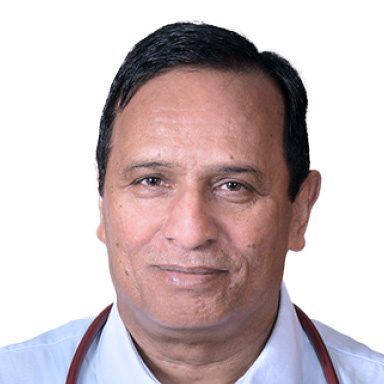When Bianca Damon suffered a stroke in March 2015, at the age of only 19, she had no idea what was happening to her.
‘For a year before the stroke I had really bad headaches and I’d get sick often, but I didn’t notice any signs of stroke,’ she says. ‘I felt a bit lightheaded and nauseous, but I didn’t think there was something majorly wrong.’
Then she started blacking out regularly, until the day she had to drag herself from her bedroom to the TV room, where she became unresponsive. Her parents got her to hospital within half an hour, but given her young age it was only a week later that doctors confirmed she’d suffered a stroke.
‘I lost movement in my right arm and leg but I’m very fortunate to have regained that now,’ she says. ‘My biggest challenge was regaining the ability to speak. I suffered from aphasia, which is a communication disorder resulting from damage to the parts of the brain that process language.
‘It does not affect your intelligence, so I knew what I wanted to say but I wasn’t able to. I felt trapped. I couldn’t read or write and I could say only a handful of words. During my three weeks in hospital it was extremely difficult to communicate with my loved ones, doctors and even myself sometimes!
‘I am still having extensive speech therapy, but I’ve gone from not being able to write a single letter to being able to share my story in writing. I’ve made good progress. I’m also being treated with blood thinners for the blood clot I suffered in my brain.
‘I lead a healthy lifestyle, I don’t drink alcohol or smoke, I eat a well-balanced diet and I exercise as often as I can.’
Doctors discovered that Bianca’s blood had been thickening in the preceding years. This contributed to her stroke, but the exact cause is not known. ‘My type of stroke is unusual because I didn’t have any typical factors,’ says Bianca. ‘Doctors say it shouldn’t happen again, but I do worry about having another one and not recovering as well as I have this time.’
Yet she feels blessed to be alive. ‘I have a great support system and I’m really excited about the future. I have plans to go back to work at the end of the year and to study business science in 2018. It’s been a challenging year, but I turned 21 in June and I made a speech at my party – in front of almost 100 people!
‘I was terrified, but I worked really hard and my speech therapist said I did fantastically well. I’m reading a novel again and am preparing to write my exams for university admission. I’m a stroke survivor and this is the new me!’
What to do in case of a stroke
‘Strokes should be treated as brain attacks, so the earliest possible recognition and seeking help are key in terms of functionality in future,’ says Dr Zafar Iqbal, a neurologist at Mediclinic Muelmed in Pretoria.
As many as 90% of all strokes are ischemic (when a blood clot obstructs a blood vessel supplying blood to the brain), and only 10% classified as haemorrhagic (when a weakened blood vessel ruptures).
Neurologist Dr Zanele Makasi is the person behind the integrated Strokes Services at Mediclinic Morningside. She is passionate about the treatment and management of stroke patients. Strokes Services is based on a chain of expert care, with relevant disciplines working together in the best interests of the patient.
Dr Makasi says, ‘It’s Heart and Stroke Awareness Month, so let’s be mindful of early signs such as facial drooping, weakness in an arm or leg, or slurred speech. Get to a health centre, clinic or hospital as soon as possible. There is overwhelming evidence in the literature of how well patients recover after a stroke if they’re managed in a well-run stroke unit.’
Who is at risk?
Strokes and heart disease are classified as cardiovascular conditions. Globally, they are the biggest killers every year, according to the World Health Organization. In South Africa, they are the second-biggest killers after HIV/Aids and its related diseases. Even so, we can lower the risks simply by making a few key lifestyle changes.
Dr Makasi says people most at risk of a stroke are those who’ve had one before – whether minor or severe. Other risk factors include:
- High blood pressure
- Diabetes
- High cholesterol
- Obesity
- Smoking
- Family history
- Age
Dr Iqbal says age is a significant factor. ‘After 55 your chances of having a stroke double for each decade of life.’
Dr Makasi adds, ‘If you’ve never suffered a stroke before, you should control your risk factors and exercise as often as you can. If you’ve suffered a stroke, your doctor will add aspirin or another blood thinner (unless it was a haemorrhagic stroke), plus anti-cholesterol medication as a form of secondary prevention.’
‘When a patient has suffered a stroke, doctors will investigate the underlying causes and try to modify or correct them,’ says Dr Iqbal.
‘In young stroke patients, doctors should look for underlying heart disease. It’s a growing problem, but 80% of cardiovascular disease can be prevented by making healthy choices. The lifestyle changes you could make include exercising, losing weight if your body mass index (BMI) is high, stopping smoking and avoiding excessive alcohol intake.’
15 million people worldwide suffer a stroke every year. Nearly 6 million die and 5 million are left permanently disabled.
Source: World Health Federation
Further publications on the topic
Doctors 1


